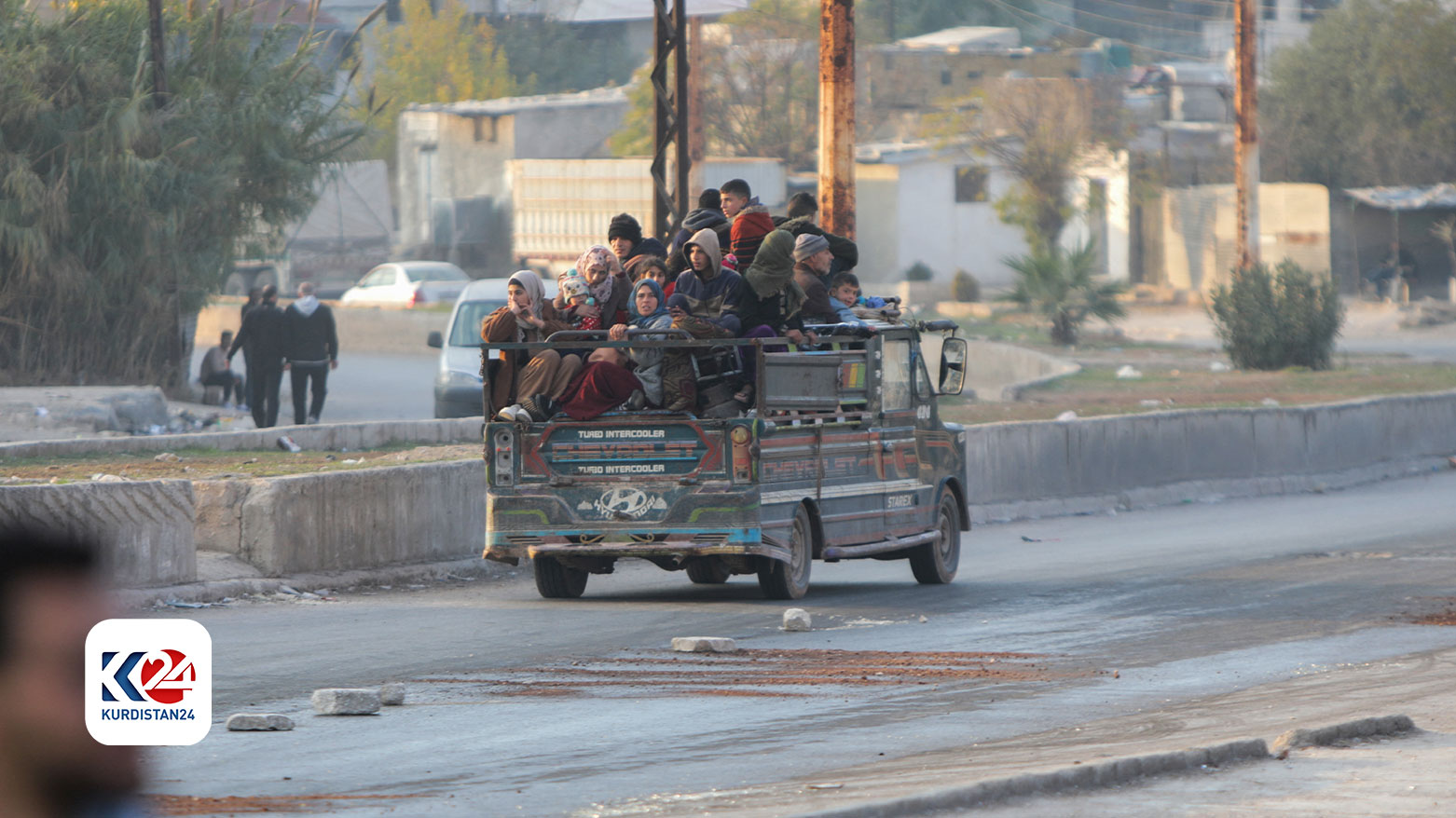US Calls for Protection of Civilians, Minorities in Syria, as Insurgents Continue their Advances
“The humanitarian impact is certainly one that is front of mind, as we see these events unfold,” Patel affirmed.

Dec. 6, 2024
WASHINGTON DC, United States (Kurdistan 24) With the fall on Thursday of Hama, Syria’s fourth largest city, to the armed Syrian opposition, led by Hayat Tahrir al-Sham (HTS), the U.S. stressed the need for the fighters to protect civilians, including minorities.
Asked about the insurgents’ capture of Hama at a press briefing later on Thursday, State Department Deputy Spokesperson Vedant Patel emphasized the need to keep the conflict away from civilians, even as he reiterated the U.S. call for political discussions among Syrians on the basis of UN Security Council Resolution (UNSCR) 2254.
His remarks came amid speculation that the rebels would soon take Homs, Syria’s fourth largest city, just 45 kilometers south of Hama on the M5 highway.
If Homs were to fall, that would threaten Damascus, another 150 kilometers further south, and, with it, the very existence of the Assad regime.
The regime is dominated by members of the Alawite sect, and the U.K.-based Syrian Observatory for Human Rights reported on Thursday that a “mass exodus” of the Alawite community in Homs was underway, despite reassurances from the HTS that they would not be harmed.
Need to Protect Civilians, Minorities
“The humanitarian impact is certainly one that is front of mind, as we see these events unfold,” Patel said, as the issue of Syria arose in Thursday’s press briefing.
“We are urging” the protection of “civilians, including members of minority groups,” he affirmed..
That might well include the Alawites, as well as others, like Syria’s Christians. Presumably, it also includes Syria’s Kurds who have been moving east to escape the fighting. Over 200,000 have fled so far.
Read More: Kurdish civilians flee as Syrian conflict escalates in Aleppo, Tall Rifat
Iranian Support for Terrorism
Patel also denounced the Iranian regime, which, he said, “has been and continues to be one of the largest exporters of terrorism and instability, since 1979”—the year of the Iranian revolution, when the Shah was overthrown.
“We want to see Iran stop its destabilizing activities inside Syria and in the broader region, full stop,” Patel affirmed.
“And we think the key to that—at least in the context of Syria—is a UN-facilitated process that is consistent with UNSCR 2254,” he added.
However, it is difficult to see that happening any time soon. The insurgents have momentum now, and the next question is whether they will be able to take Homs.
And if they do, the next question will be: what is the fate of Damascus and of the Assad regime more broadly? Almost certainly, more conflict will follow, before it is possible to contemplate negotiations.